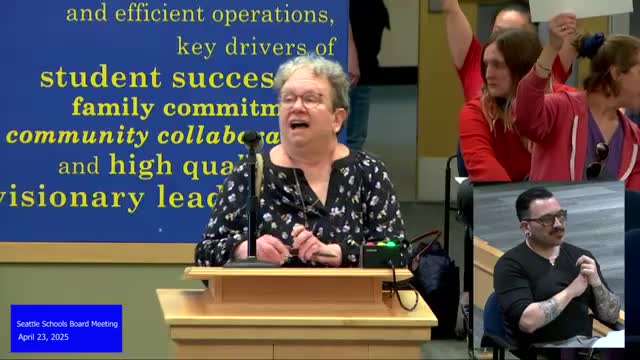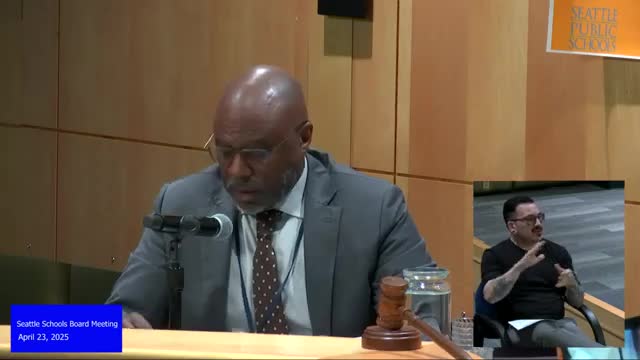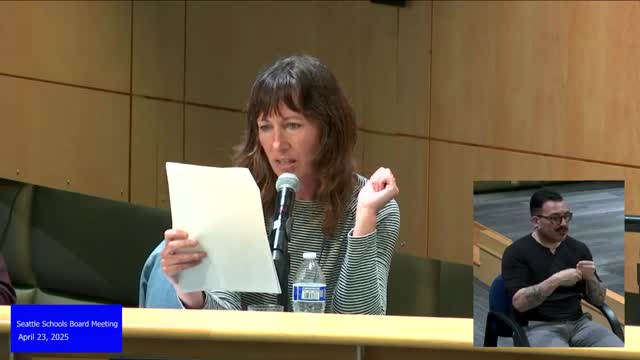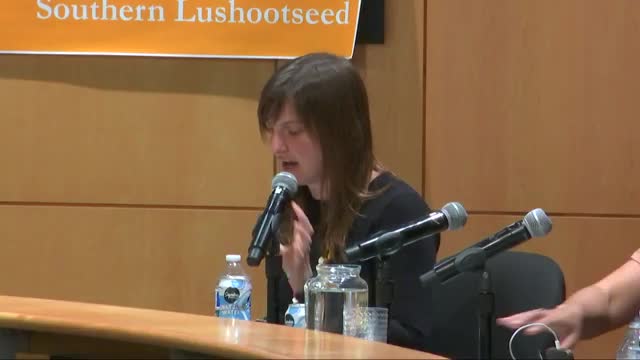Article not found
This article is no longer available. But don't worry—we've gathered other articles that discuss the same topic.

Board pauses vote on Emerald Learning Center contract after public safety concerns; item moved to May 14

Rainier Beach High School opens new building; alumnus credits student-workforce agreement for career turnaround

School board hires executive-search firm HYA to run superintendent search; directors request transition timeline

